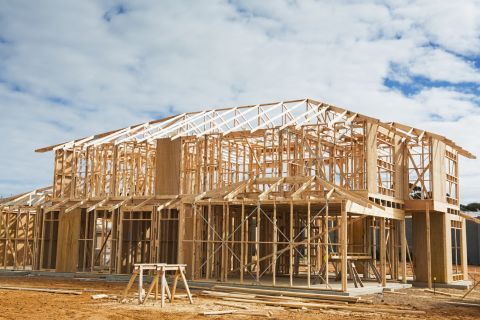WaterNSW: Robbing Peter to pay Paul?
Price rises for water are coming, but is it really necessary to raise prices to pay NSW Government a dividend?

What the hullabaloo is IPART?
Here’s an acronym many people in New South Wales wouldn’t know – IPART. Sounds like an arts body? Right. Well, no. It’s the Independent Pricing and Regulatory Tribunal.
According to its website, IPART sets the maximum price for certain public goods and services and promotes competition for water, public transport, council rates and more.
It does this through regular consultation processes, where it investigates different industries making recommendations on pricing and competition matters.
IPART sets price limits for water utilities, public transport, and local government rate charges. It also monitors pricing in the energy market and reviews a range of other industries in NSW.
National Seniors Australia regularly makes submissions to IPART on behalf of older people living in NSW to ensure your voice is heard on issues from transport to energy and everything in between.
You can see our submissions to IPART on our website here.
According to the Independent Pricing and Regulatory Tribunal (IPART), the price of water will rise from 1 October 2025 as part of two separate pricing reviews.
Because there is limited competition in the supply of water, most customers have no choice about who supplies it to them. Instead, IPART independently sets the price for water based on efficient cost and fair price.
Water prices will go up in Sydney
As a result of IPARTs final determinations water bills for a typical household will increase on average by 13.8% or $168 from 1 October, and then by around 5.1% or $77 each year (plus inflation) until 2030. The increase will be roughly half that for pensioners recieving a concession.
This increase is a blow to productivity and household budgets, but could have been a lot worse.
Under its proposal, Sydney Water proposed that households on average pay $84 more than what IPART recommended for 2025-26. Under the proposal from Sydney Water, a typical bill would have been $218 higher than what IPART recommended by 2029-30.
IPART has created a bill estimator to enable residents to find out what the draft decisions could mean for their bills. It includes an estimate for concession card holders, such as pensioners.
Bulk water charges going up
A large part of the increase comes from changes to bulk water charges via WaterNSW. Bulk water charges from WaterNSW to Sydney Water account for approximately 7.5% of Sydney Water’s total costs.
WaterNSW’s Greater Sydney business supplies bulk, raw, and unfiltered water to:
Sydney Water Corporation
Wingecarribee Shire Council
Shoalhaven City Council
Goulburn Mulwaree Council.
The WaterNSW component of a Sydney Water bill will increase from $94 per year now to $102 in 2025-26 then to $136 in 2028-29
While this increase is less than the 14% per year before inflation that WaterNSW put forward in its original (and subsequent) submissions to IPART, it is still well above overall CPI.
In its draft determination, IPART stated that “not all of the increases in expenditure that WaterNSW proposed are necessary or efficient for this next three-year period”. It was unwilling to make a determination for the full five years but has still accepted a hefty increase in the cost of water.
While price rises are an inevitable part of life, there is a question about whether the amount of increase is justified when part of the rationale for price increases is to ensure WaterNSW can pay the NSW Government a dividend.
If you think this is disappointing, then read on to learn more and consider joining our essential services campaign.
Are water corporations and the regulator operating in the best interests of the public?
Households should be angry that WaterNSW, a state-owned corporation, and Sydney Water appear to be all too happy to chance their arm in this way.
While the regulator has pulled them back somewhat, it seems all to often that public corporations aim high, knowing the regulator will only moderate marginally. Furthermore, some of the justification for price rises appear disingenuous.
Water is an essential service, so we do not understand how it can be said that charging people a higher price for water would benefit the people of NSW when they are using this to pay the NSW Government a dividend. That was part of WaterNSW’s justification for their initial proposal to IPART.
This appears to be a tax disguised as a water bill.
NSA made a submission to IPART saying just that.
It’s not just water, though, this same cat and mouse game is played across the country in energy and other sectors where the public is regularly asked to cough up.
If these kinds of moves are something that annoys you, then join our essential services campaign or become or National Seniors Australia member. We are fighting to make sure older people (and younger ones) get a better deal for essential services.
You are now subscribed for updates on this campaign. Thank you for your support.




